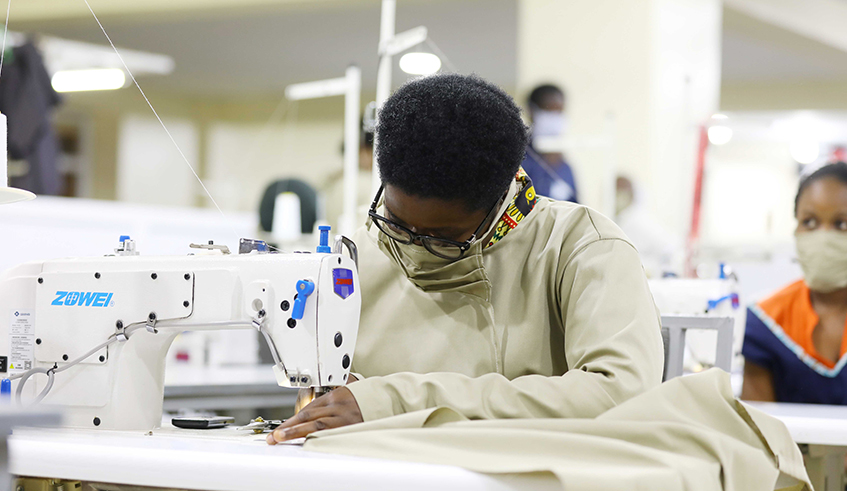

Rwanda Environment Management Authority (REMA), on April 20, said it was working on the disposal guidelines of the masks that will be worn during this period of the coronavirus pandemic.
The guidelines follow an announcement from the Ministry of Health urging Rwandans to wear masks as it intensifies efforts to curb the spread of COVID-19.
Speaking to The New Times, Eng. Coletha Ruhamya, the Director General at REMA confirmed that the institution is working with concerned institutions to issue the guidelines as soon as possible.
"The announcement was made yesterday and our technical team is working on the guidelines of disposal as they shouldn’t be mixed with other wastes to avoid recycling the virus,” said Eng. Ruhamya.


Workers at Apparel Manufacturing Group Ltd make facemasks in Kigali on Monday, April 20. Photo: Olivier Mugwiza.
Our guidelines, she added, will clearly elaborate on both cases be it the surgical masks and other types of masks, for we were normally used to mostly health workers using these masks.
Local manufacturers are expected to produce 600,000 masks every day after Rwanda Foods and Drugs Authority (Rwanda FDA) gave green light for mask production to some 22 local textile industries.
Prior to that, Rwanda FDA had issued guidelines about the production of those masks.
According to the guidelines, these masks are of 5 types.
Type 1 and 2 having 4 layers; 1st (outermost) and 4th layer composed of cotton and polyester, and polypropylene (commonly used on reusable shopping bags) for the former whereas for the latter, all first 3 layers are made of polypropylene as the fourth layer is made of an addition of polyester and polypropylene
According to the Ministry of Health’s medical waste management plan, waste from health care facilities depending on the category are handled differently from municipal wastes.
For instance, infectious waste suspected to contain bacteria, viruses, parasites or fungi are subjected to incineration and deep burial.


